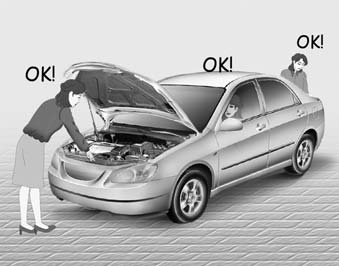Highway driving

Tires
Adjust the tire inflation pressures to specification. Low tire inflation pressures will result in overheating and possible failure of the tires.
Avoid using worn or damaged tires which may result in reduced traction or tire failure.
NOTICE
Never exceed the maximum tire inflation pressure shown on the tires.
WARNING
• Underinflated or overinflated tires can cause poor handling, loss of vehicle control, and sudden tire failure leading to accidents, injuries, and even death. Always check tires for proper inflation before driving. For proper tire pressures, refer to “Tires and wheels” in section 8.
• Driving on tires with no or insufficient tread is dangerous. Wornout tires can result in loss of vehicle control, collisions, injury, and even death. Worn-out tires should be replaced as soon as possible and should never be used for driving. Always check the tire tread before driving your car. For further information and tread limits, refer to “Tires and wheels” in section 7.
Fuel, engine coolant and engine oil
High speed travel consumes more fuel than urban motoring. Do not forget to check both engine coolant and engine oil.
Drive belt
A loose or damaged drive belt may result in overheating of the engine.
See also:
Checking and changing the engine coolant
WARNING:
Do not remove the radiator cap when the
engine is hot. When the engine is hot, the
engine coolant is under pressure and may
erupt through the opening if the cap is
removed. You could be ...
To Clean the Leather Upholstery
In the normal course of use, leather upholstered surfaces will, like any material,
pick-up dust and dirt. This dust and dirt must be cleaned off or it may work into
the surface of the leather, cau ...
Rear combination light bulb replacement
(1) Back-up light
(2) Tail light
(3) Rear turn signal light
(4) Stop and tail light
(5) Side marker
Rear turn signal, stop and tail light, side marker
1. Open the trunk lid.
2. Remove the ...


